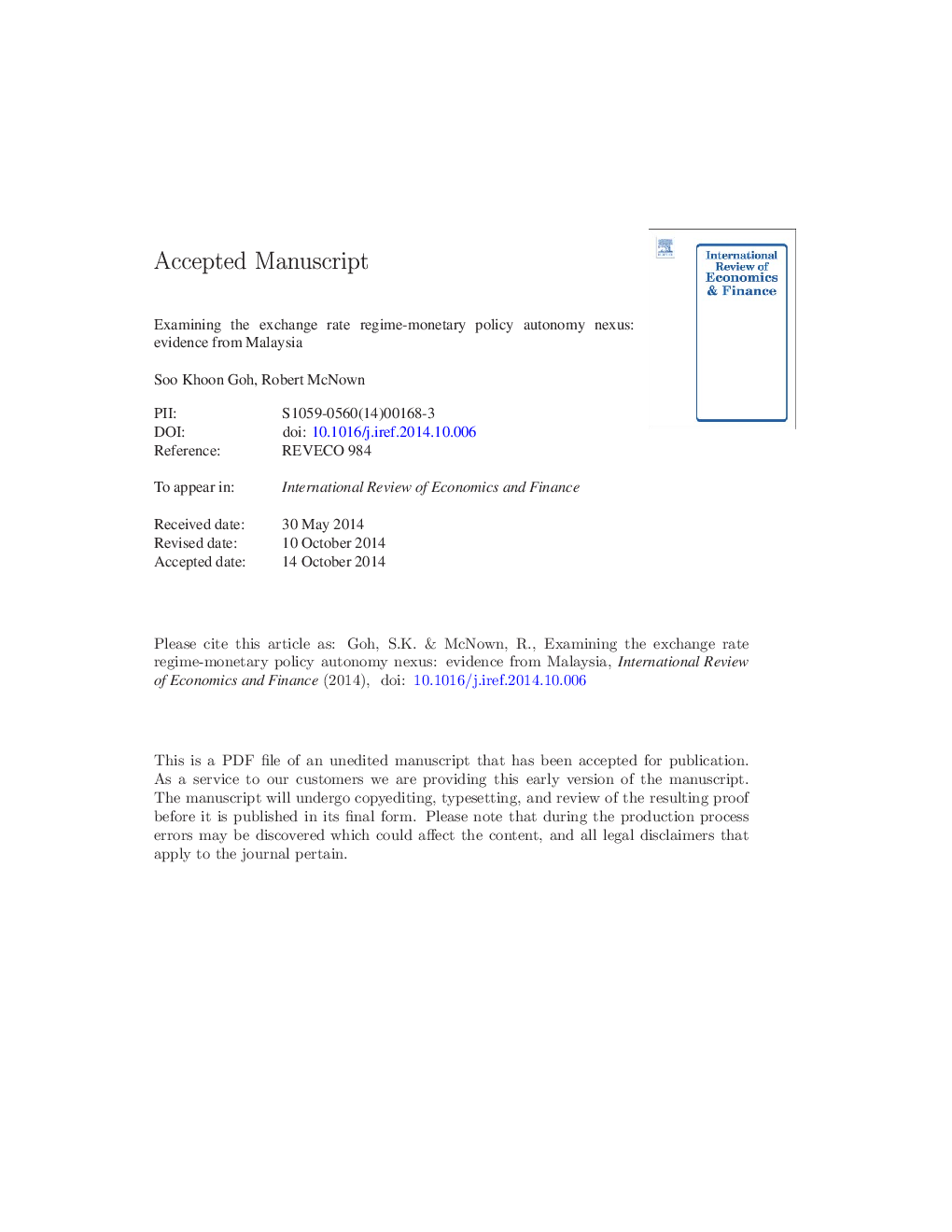| Article ID | Journal | Published Year | Pages | File Type |
|---|---|---|---|---|
| 5083638 | International Review of Economics & Finance | 2015 | 30 Pages |
Abstract
Some studies suggest that Asian countries can be exempted from the impossible trinity. We examined the empirical relevance of this argument by reviewing the experience of Malaysia. We defined monetary autonomy by analyzing the interaction between the Malaysian and US interest rates. We used the Unrestricted Error Correction Model Pesaran Bounds test to analyze the interaction between the Malaysian and US interest rates during three different sub periods. Our empirical results showed that there is no cointegration evidence during the managed floating exchange rate periods. However, we found that there was a level relationship between the Malaysian and US interest rates during the period when Malaysia had a fixed exchange rate and an open capital account regime. In contrast with other existing studies, we conclude that Malaysia is not exempted from the impossible trinity. Our study has also highlighted that the Pesaran Bounds test must be interpreted carefully when applied to series with mixed orders of integration.
Related Topics
Social Sciences and Humanities
Economics, Econometrics and Finance
Economics and Econometrics
Authors
Soo Khoon Goh, Robert McNown,
